Hair loss, or medically referred to as androgenetic alopecia refers to excessive hair loss from your mainly your scalp, but in some cases can occur in other regions in the body. Hair loss can be the result of hereditary genetics, hormonal imbalances, increase of stress, medical conditions, or simply a normal part of aging. Both men and women have the ability to experience androgenetic alopecia, but it is typically more common in men.
Hair loss can appear in many different ways, depending on what is the root cause to the problem. It can come quickly, or it can take its time and gradually shed and thin. Signs and symptoms of hair loss can include; gradual thinning on the top of the head, circular or patchy bald spots, sudden loosening of hair, hair loss occurring throughout the entire body, patches of scaling that bread over the scalp.
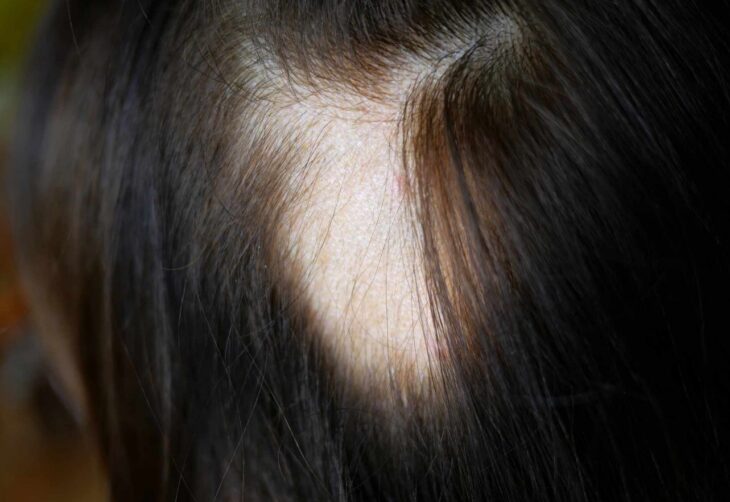
Source: Verywell Health
Contents
How is hair loss linked to your psyche?
Hair loss has often been referred to as the spirit killer, meaning the more harm it does to one’s scalp, the more it does to one’s mental perception of themselves. While some men continually make the transition from a full head of hair to a confident bald look, there is undoubtedly a sense of anxiety that will come to anyone when they see the initial signs of a receding hairline. The receding hairline is the most common symptom for hair loss, or androgenetic alopecia, and this small change can cause drastic psychological impacts on any individual.
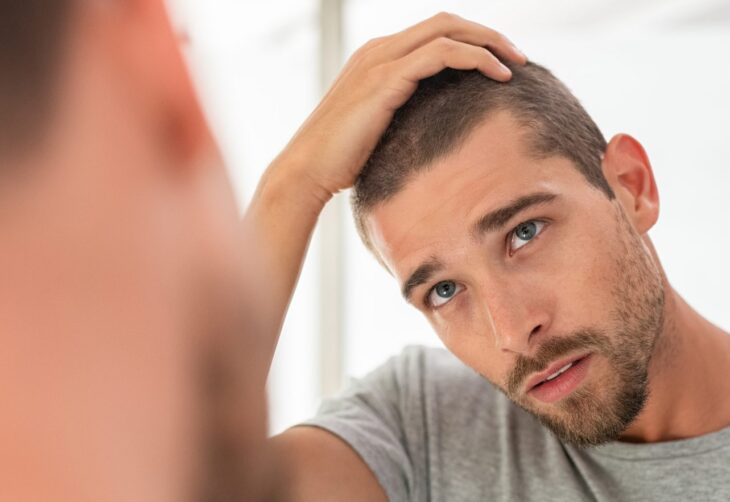
Source: Varona Hair Restoration
Psychological effects of hair loss
Overtime, the research done on the psychological effects of hair loss has been somewhat limited to an extent, but experts across North America supply evidence that confirms people who experience hair loss of any kind tend to have more intense internal emotional suffering. Hair loss can be psychologically damaging and has been linked to providing lower self-esteem and lower confidence for both any male and female individual. This emotional suffering often leads to lower, and more depleted moods, a lack of interest in doing any activity, sleep deprivation, excessive worrying and can commonly lead to personal, social, or work-related anxiety.
It has been suggested that people who experience a more extreme and rapid loss of hair are more likely to experience higher psychological distress levels when compared to those who deal with mild and slow hair loss. This is mainly because the loss of hair has the ability to completely change a person’s appearance. With alopecia, someone can lose hair on the top of their head, as well as their eyelashes and eyebrows, and these hair regions contribute significantly to the appearance of any person. This change of appearance is why we hear of more insecurities and loss of self-esteem in individuals experiencing hair loss, as these individuals do not have the ability to change themselves back to the way they looked before they began to experience the loss of hair.
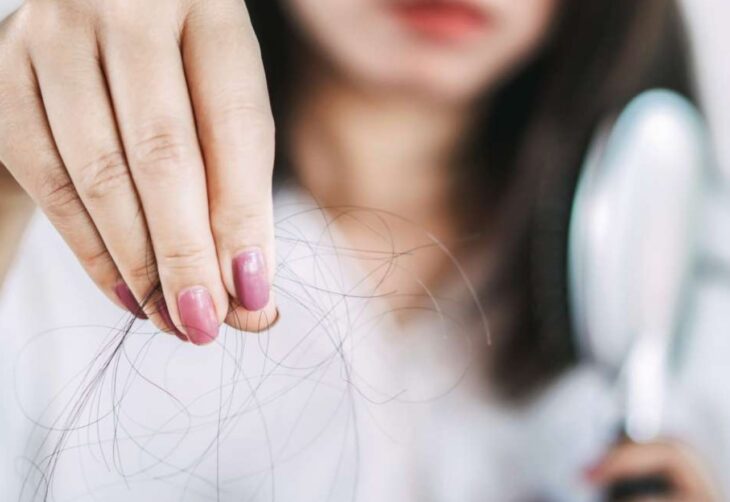
Source: SFGate
Medical diagnostic for people experiencing psychological disorders from hair loss
There have been several studies that have shown data which compares the general population of people, to people who experience hair loss and the study presented results that showed people who dealt with hair loss were seen to have an increased prevalence of psychiatric disorders. These disorders include depressive tendencies, heightened anxiety, increased paranoia tendencies, as well as more phobias to be in social settings.
Continuing the information stated above, hair loss studies have shown a strong psychological impact on a person, and can often lead to conditions of depression, anxiety, or social phobia.
- Hair loss has been shown to lead to depression, which can lead to lower moods, lack of interest or pleasure when doing activities, low energy levels, and loss of sleep
- Hair loss has been shown to lead to more anxious behaviours, which can cause excessive worrying habits, difficulty to control thoughts, an increase of tension in the muscles of the body, increased heartbeat, and sweating
- Hair loss has also been shown to lead an individual to having more social phobia and social anxiety, which can be defined as having anxious feelings or fear of being judged or humiliated in a social setting, resulting in avoidance of such social situations altogether.
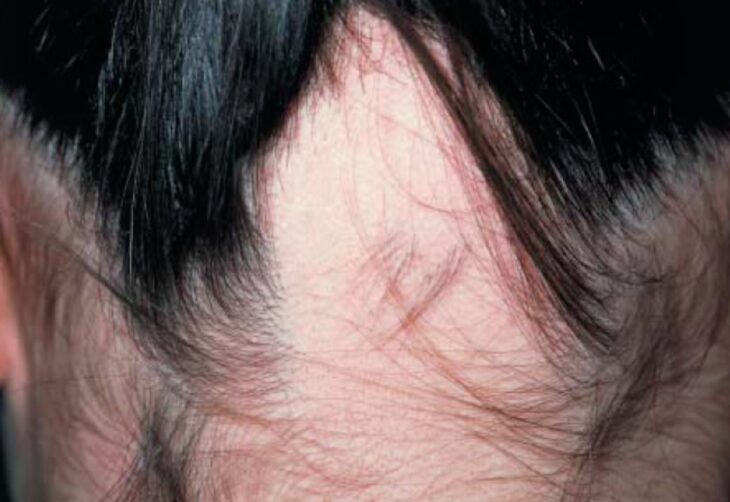
Source: BioStock
Potential treatments for these psychological disorders
While drug treatment is effective in treating any negative psychological behaviours because of your hair loss, you may also want to consider pursuing other alternatives alongside the medication, which have the ability to vocally address other psychological symptoms that come about. These alternatives can be cognitive behavioural therapy with a registered doctor, or the use of social support groups. Both of which allow an individual to feel less alone about the health issue which psychologically impacts thousands of people.
Though these types of psychological treatments are important for people with hair loss, research has shifted its main focus on the general issue of simply coping and accepting hair loss, rather than a specialized psychological treatment. But of course, telling a person to just deal with an issue that is causing extreme insecurities and psychological disorders, is a lot easier said than done.
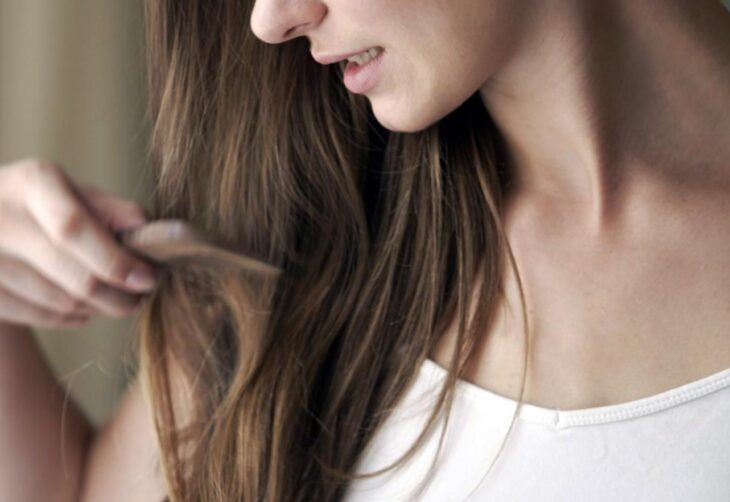
Source: Verywell Mind
Recap on the overall topic
It is evident that men or women who deal with hair loss are more susceptible to psychological disorders, as hair loss can damage one’s self-esteem and confidence, which then snowballs into more intense disorders such as heightened anxiety and social phobias. The media is one to blame for this increase of personal shame for people dealing with a common health concern. The stigma around hair loss makes it something to be feared for a man or woman, which is why physicians across North America are treating more and more patients who are dealing with the psychological damages of a balding head.
Though drug treatment can help deal with the mental repercussions of hair loss, the most recommended practice by professionals is behavioural therapy or group therapy to allow an individual to be able to accept their hair loss and find ways to cope with it. If you are dealing with hair loss, whether it be extreme, or mild, the best way to prevent it from getting worse, is accepting it. Seek treatment at www.YourMD.ca as soon as possible and speak with a registered physician on the ways to psychologically or physically reduce your hair loss to allow you to live a life full of happiness, without anything holding you back!
